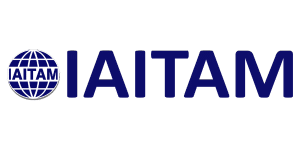Reshaping ITAD: Secure Resale Strategies for Financial Gain
With a decline in overseas markets, organizations are shifting ITAD strategies towards asset resale for environmental alignment and financial gains.

IT Asset Disposition Opportunities in a Changing Global Landscape
As we continue to examine the findings from the 2023 IAITAM Member Organizations IT Asset Disposition Services Survey, we see the increase in recycling taking center stage as third world overseas computing values decline, revealing a shifting landscape shaped by post-COVID changes, fluctuating resale values, and the delicate balance between recycling and refurbishment.
Decline in Overseas Markets Post-COVID
According to Microsoft and their MAR program, less than 1% of all annual USA retired computing devices are resold with a legal Microsoft Authorized Refurbisher license. The remaining 99% typically find their way to third-world countries, providing a less expensive alternative than purchasing new devices. The constraints on new computing supplies during the COVID pandemic led to a significant uptick in the retail sales of refurbished and OEM factory recertified computing in the USA. A year after the global supply constraints, the demand for these products has continued to surge, becoming a more popular choice for everyday purchases. This sustained demand has resulted in prices for refurbished and OEM factory recertified computing staying 50% higher than similar-age computing technology before the COVID era.
Impact on Resale Values and ITAD Programs
The decrease in overseas computing values has a direct impact on the resale values of retired IT equipment in the USA. This shift affects organizations’ ITAD programs and partners, turning potential positive recovery into a negative situation that poses a significant risk for providers to compromise on your ITAD program. Opting for recycling means providers are not obligated to facilitate any recovery for the organization. Consequently, organizations may find themselves with no return or, worse, facing a bill.
Most providers rely on the resale of retired IT equipment to maintain profitability. However, most of them charge fees for basic logistics, data destruction, and audits that fall below $15 per asset—insufficient to sustain a profitable business. As a result, many ITAD providers lack the necessary infrastructure to effectively deliver high-quality refurbished and OEM factory recertified computing products. This is mainly because their primary business model involved redirecting 99% of computing equipment to third world buyers who resold the items as-is in second-hand shops. To become a successful supplier to USA retailers, ITAD providers are required to offer products of like-new quality and deliver a customer experience that consistently earn a satisfaction rating of 98% or higher on major retailers and online marketplaces like Amazon Renewed and eBay Refurbished. Unfortunately, only a limited number of ITADs possess this essential DNA.
Balancing Recycling and Refurbishment Amidst Market Fluctuations
Amidst these market conditions, organizations find themselves at a critical juncture. The traditional strategy of exclusively concentrating on resale to third world countries is no longer viable, nor does it align with Environmental, Social, and Governance (ESG) reporting practices. Instead, organizations should align with providers whose primary focus is on resale to the next user in developed countries such as the USA, UK, EU, and more, where there is a tenfold demand for your retired IT equipment as high-quality refurbished and OEM factory recertified computing products.
Finding these providers is straightforward—trace the journey of your retired IT by exploring online retail sites like Amazon Renewed, and eBay Refurbished, Bestbuy.com, Target.com, Walmart.com. This will give you insight into the actual market value of your equipment and how it is being sold with measurable impact to the next user.
Navigating a Transformed World
The IT industry has undergone a significant transformation in the wake of a global pandemic. The impact on ITAD programs has resulted in a discernible decline in overseas markets for computing equipment. Supply chain disruptions and unprecedented trade challenges have contributed to a noticeable downturn in the overseas demand for IT assets. In response to these shifts, organizations are compelled to reassess their ITAD strategies and embrace IT asset resale. Adapting to these market dynamics creates alignment with environmental goals and offers tangible financial benefits as organizations look to enhance their ITAD programs by capitalizing on the resale of IT assets to the next user.
